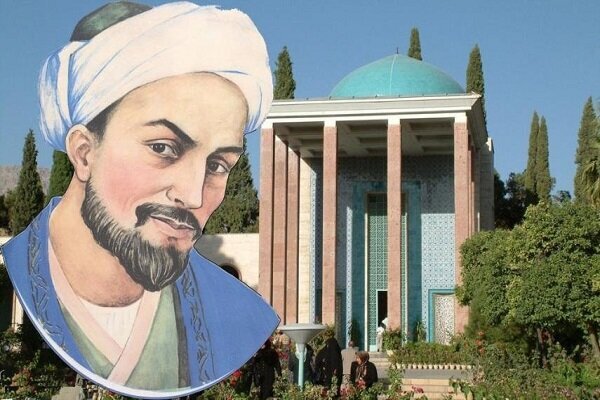National Sadi Day: celebrating the poet of wisdom and compassion

TEHRAN- Sadi, the renowned Persian poet, is considered one of the greatest literary figures in Iranian history. Born in Shiraz, Iran in the 13th century, Sadi's works have stood the test of time and continue to inspire readers around the world.
Iranians celebrate Sadi Day on the 1st Ordibehesht in their national calendar. The day marks the anniversary of the completion of the “Gulistan” or "The Rose Garden”, his most famous work. This collection is a masterpiece of Persian literature and is divided into eight chapters, each dealing with different aspects of life, ethics, and morality. Sadi's writing is characterized by its eloquence, wisdom, and wit, making him a beloved figure in Persian literature and culture.
One of the key themes in Sadi's work is the importance of kindness, compassion, and generosity. His poems often emphasize the value of being a good person and treating others with respect and understanding. Sadi's words encourage readers to strive for personal growth, self-improvement, and moral integrity.
Sadi's influence extends far beyond the borders of Iran, as his works have been translated into numerous languages and continue to be studied and appreciated by scholars and readers worldwide. His poetry has inspired countless other artists, writers, and thinkers, making him a lasting and important figure in the world of literature.
In addition to his poetic works, Sadi was also a traveler and a philosopher. He journeyed extensively throughout the Islamic world, gaining valuable insights and experiences that would later be reflected in his writing. His travels allowed him to interact with people from different cultural backgrounds and gain a deeper understanding of the diversity of human society.
Sadi's legacy as a poet and thinker remains strong to this day. His words continue to resonate with readers from all walks of life, offering timeless wisdom and guidance for navigating the complexities of the world. Sadi's impact on Persian literature and culture is undeniable, and his work will undoubtedly continue to inspire and enlighten generations to come.
SAB/
